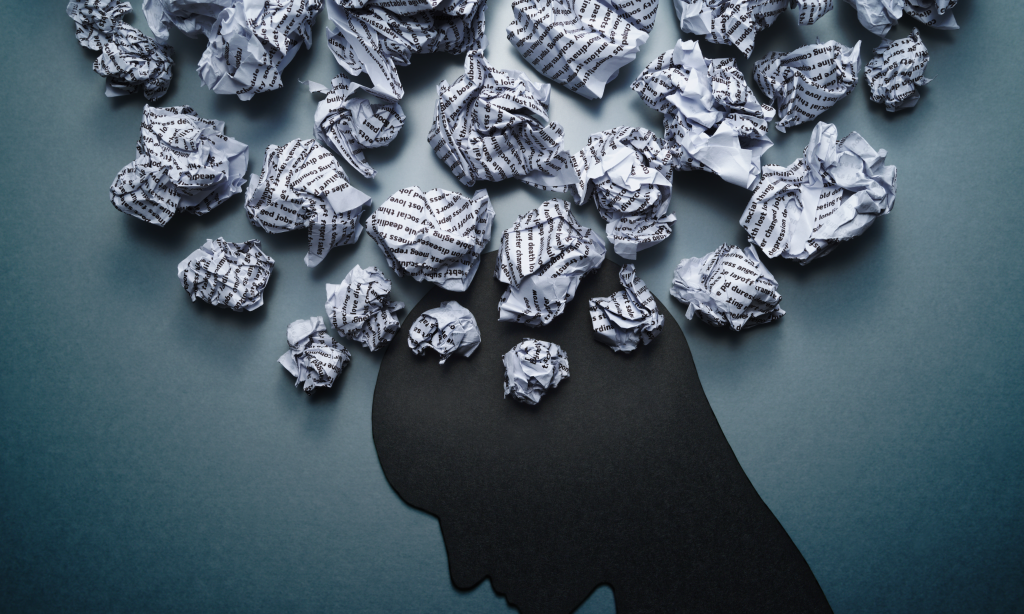The general population is often concerned about their physical wellbeing, often obtaining a physical examination from their local general practitioner on a regular basis. Unfortunately, even though people are generally trying to keep their physical wellbeing in check, too little individuals are attending to their mental wellbeing as they are to their physical health. There are numerous medical conditions that can affect a patient’s mental health, with depression and anxiety disorders being amongst the most commonly diagnosed mental disorders.
According to the Anxiety and Depression Association of America, as much as 18.1% of the American population suffers from depression or another anxiety disorder at any given time, but less than 40% of these individuals are currently obtaining adequate treatment for their condition. Additionally, millions of people may be living with depression without realizing it; thus going undiagnosed – potentially for numerous years. Knowing what symptoms depression causes is essential as this may help a patient diagnose and treat the condition before it causes a significant amount of complications.
Symptoms Of Depression
Depression can cause a variety of symptoms to develop, but tends to affect each individual in a different way. WebMD explains that depression tends to make a person feel empty and sad, as well as causing them to experience anxious emotions. People may also feel hopeless and may become irritable relatively quickly. Feelings of guilt, worthlessness and being unable to help anyone in a positive manner are also relatively common signs that a person may be suffering from depression.
Signs that a person may be depressed might also include changes in their sleeping and eating habits, as well as a significant reduction in energy. Depression also often causes a person to become less interested in participating in activities they used to participate in, such as sexual intercourse.
Causes Of Depression
Depression can be caused by a large number of factors. In fact, the cause may greatly vary from one individual to another. Harvard Medical School explains that even though it is known that depression is caused by a physical imbalance in brain chemicals, there is much more to the development of depression than simply a brain chemical imbalance.
According to Medical News Today, genetics have been proven to play a role in the risk factor for developing depression. Additionally, other risk factors that might also contribute to depression include going through a tough life event, such as issues at work or relationship problems. Using certain recreational drugs, such as amphetamines or alcohol, might also increase a person’s risk of developing depression. Furthermore, it is also known that some prescription drugs can contribute to symptoms of depression. Examples of such drugs include beta-blockers and corticosteroids.
Bioresonance Therapy And Depression
Bioresonance is a holistic treatment option that people can opt for when they suffer from a large number of health conditions, ranging from the common ailments like allergies or pain, to more serious medical concerns, such as arthritis. Some health practitioners have also seen promising results when utilizing a BICOM device to perform bioresonance therapy on patients who have been diagnosed with depression. The device can be used along with the existing therapies and medication that are already being provided to the individual, which may enhance the effectiveness of the results the patient experiences.
With the use of bioresonance therapy, two particular methods can be utilized in order to assist a patient suffering from depression. The primary function of these devices is to read the body’s reaction to certain types of electromagnetic waves, which then helps the practitioner identify potential stressors, metals and other pathogenic substances that may be damaging the patient’s physical wellbeing. A program can then be adjusted to send back electromagnetic waves, which may help to reduce the presence of these pathogenic materials in the patient’s body. In turn, improvements in their physical wellbeing may extend to their mental health as well.
In addition to the above-described method, it should also be noted that the devices utilized to perform bioresonance therapy on a patient are able to send magnetic pulses to the limbic system of the patient’s brain. In turn, this may assist with stimulating the production of certain neurological chemicals, specifically in the amygdala and hippocampus areas of the brain. This causes more dopamine, norepinephrine and serotonin to be released, thus leading to improvements in the patient’s mood.
Conclusion
Depression is a serious mental health disorder that should be attended to in order to reduce the risk of developing complications due to this particular medical condition. The general population is advised to become educated on the particular symptoms that may signal the presence of depression, and to act accordingly in order to manage their condition. A treatment plan developed to assist a patient in reducing the symptoms of depression they are experiencing can be combined with a series of bioresonance therapies for more effective results.


